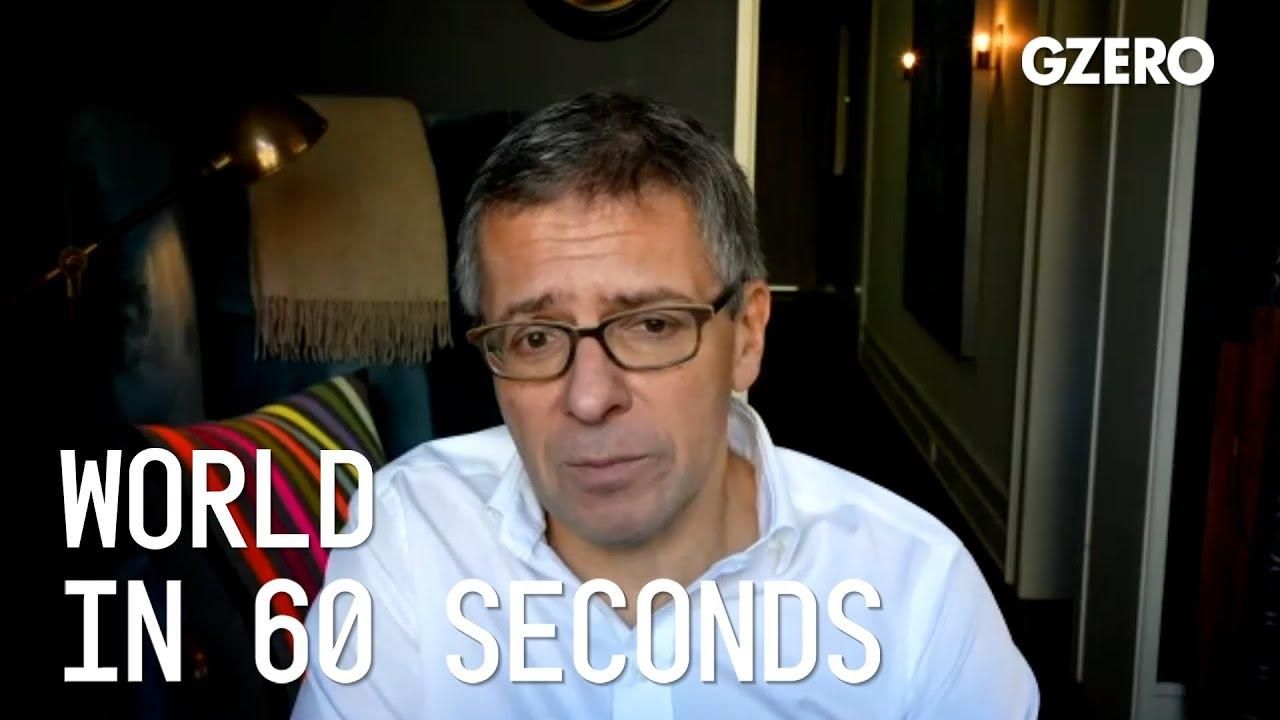Ian Bremmer shares his insights on global politics this week on World In :60.
Do the US midterms matter to the rest of the world?
Usually, no. This time around, absolutely, yes. In part because of China. A Republican-led House is going to be a lot tougher on US-China relations, export controls, Taiwan trips, capital controls, you name it, capital restrictions. And I suspect that Biden is not going to want to be outdone by the Republicans on this issue. So it will mean a hardening there. But also, just the fact that the US is going to be seen as so much more politically dysfunctional, efforts of investigations and impeachments and the rest against Biden. The administration and the fact that Biden has portrayed this as a loss of democracy makes it harder for the Americans to be consistent and coherent with allies around the world. It doesn't stop US leadership on issues like Russia-Ukraine, but it does actually matter.
Will Russia be open to peace talks under the conditions laid out by Ukrainian President Zelensky?
I think that peace talks are becoming more likely again. The Americans, the Europeans, are pressuring Zelensky to talk with the Russians. Though it does not have to be at the head of state level and Zelensky isn't going to sit down and talk to Putin. But also the Chinese have been pressuring the Russians to talk to the Ukrainians. And indeed, I've just seen the deputy foreign minister of Russia saying, well, "we were never the ones that cut it off and we have no preconditions, we're ready to talk as long as there's goodwill," which is a very different position than the one they've had in the last couple months. But all which implies to me that some level of direct re-engagement of the Russians and the Ukrainians is reasonably likely. Does not in any way mean that we're close to actual negotiations on substance, on the ground, a cease fire, a pause in the fighting, any of those things. That becomes more likely as winter comes and as the forces get exhausted and the Russians, new Russian forces dig in.
As COP27 gets underway, will the summit yield meaningful policy action on climate?
No. Sadly, that's not happening out of this COP summit. In fact, what there is a bigger gap between developing countries who want to be paid for all the damages and want to be paid to do a transition. And the developed countries that just aren't doing very much in that regard at all. It is good to see that Brazil, the DRC and Indonesia are coming together on deforestation and OPEC for deforestation. But instead of taking stuff out of the ground, hoping putting stuff back in. It's good to see that kind of coordination going forward. And certainly, post-Bolsonaro, Lula's more interested in showing that he can make progress on that issue. It's pretty urgent, but broadly speaking, this is a bit of nothing burger for a COP summit. Hopefully COP28, COP29 gets us back on track on that front.
More For You
America’s new National Security Strategy confirms what Europeans have feared for months: Washington now sees a strong, unified European Union as a problem to be solved, not an ally to be supported.
Most Popular
The power of sports
What’s Good Wednesdays™, December 10, 2025
Walmart's $350 billion commitment to American jobs
In this episode of Tools and Weapons, Microsoft Vice Chair and President Brad Smith sits down with Ed Policy, President and CEO of the Green Bay Packers, to discuss how purpose-driven leadership and innovation are shaping the future of one of the world’s most iconic sports franchises. Ed shares how technology and community-focused initiatives, from Titletown Tech to health and safety innovations on the field, are transforming not just the game of football, but the economy and culture of Green Bay itself. He explains how combining strategic vision with investment in local startups is keeping talent in the Midwest and creating opportunities that extend far beyond Lambeau Field.
Subscribe and find new episodes monthly, wherever you listen to podcasts.
More than a week after Hondurans cast their ballots in a presidential election, the country is still stuck in a potentially-dangerous post-election fog.
